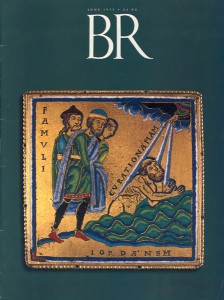No other book has influenced American culture, its values and institutions, more than the Bible. If students are to understand fully the culture in which they live, somehow they must be introduced to the Bible.
Can this be done constitutionally in public schools? It not only can be; it should be.
Obviously the Bible cannot be taught to propagate religion—or secularism. As Thayer Warshaw has stated:
“It should be taught in a manner consistent with the law of the land, America’s commitment to pluralism, professional integrity, and the realities of the classroom situation.”1
The law on the subject is clear—at least in principle. In the case of Abington v. Schempp, the U.S. Supreme Court ruled that a daily reading of ten verses of the Bible over the school’s loudspeaker system was essentially devotional and therefore unconstitutional. At the same time, the Court stated:
“It may well be said that one’s education is not complete without a study of comparative religion or of the history of religion and its relation to the advancement of civilization. It certainly may be said that the Bible is worthy of study for its literary and historic qualities. Nothing we have said here indicates that such study of the Bible or of religion, when presented objectively as part of a secular program of education, may not be effected consistently with the First Amendment.”2
In another case, the Court noted:
Already a library member? Log in here.
Institution user? Log in with your IP address.

